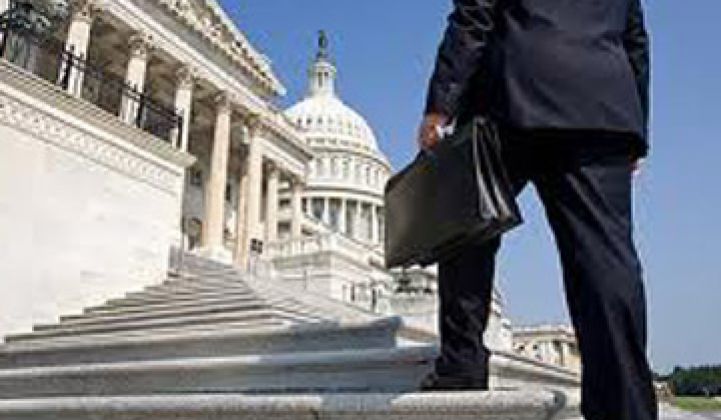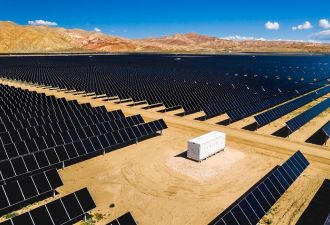There is a lot of interest in clean energy. Here’s just a partial list of the US groups out there: American Business for Clean Energy, Business Council for Sustainable Energy, Environmental Entrepreneurs, Investor Network on Climate Risk, Biomass Power Association, Renewable Fuels Association, Clean Economy Network, U.S. Climate Action Partnership, Clean Energy Works, U.S. Clean Heat and Power Association, Solar Alliance, We Can Lead, American Wind Energy Association, American Coalition for Ethanol, Advanced Biofuels Coalition, Wind Coalition, Business for Innovative Climate and Energy Policy, Growth Energy, National Hydropower Association, Geothermal Energy Association, Solar Energy Industry Association, Solar Electric Power Association, Ceres, American Council on Renewable Energy, American Biogas Council, Carbon War Room. Algal Biomass Association, Fuel Cell and Hydrogen Energy Association. Electrification Coalition, American Council for Energy Efficient Economy, Gridwise Alliance, Demand Response and Smart Grid Coalition, American Energy Innovation Council, BlueGreen Alliance, Water Innovations Alliance.
Remember, that is a partial list. And that doesn’t even include state and regional groups, of which there are dozens more.
Get the picture? A jumble of letters: 'C' for councils (five) and coalitions (five); 'A' for associations (11) and alliances (four); and 'S' for solar (three); plus, at least four groups directly and indirectly touching 'B' (for biofuels) and more than half a dozen groups broadly positioned around 'E' for energy. What does that spell? Trouble with a capital 'T.' At a time when the clean energy industry needs one powerful voice to drive policy and get federal and state lawmakers to actually do something visionary, what we are getting is a 100-part disharmony of sometimes clashing, sometimes overlapping agendas. With the recent shift in political winds in D.C. and in many state houses signaling a tougher road ahead for a clean energy agenda, the need for that unified voice is even greater.
In fairness, an examination of the missions for the various groups often shows material differences in their focus, but how important are those differences in the broader picture? That is the question that we need to be asking ourselves.
The environmental NGOs -- EDF, NRDC, WRI, etc. -- failed to influence national policy in a significant way during the first half of Obama’s current (and possibly only) term. But the truth is that when it comes to getting more aggressive adoption of clean energy policies, the same can be said for the business interest groups listed above. A rationalization and consolidation of these groups is a reasonable expectation, and even if that fails to materialize, there is a strong need for an all-encompassing umbrella “organization of organizations” that rises above the petty jealousies and turf wars that often make the trade association, non-profit world ineffectual and scattered. Just as a consolidation of the cleantech industry itself is overdue, so too is one for the organizations that represent it.
Ironically, my involvement in the Clean Economy Network (CEN) was motivated by a desire for an industry defined by “distributed energy” to become more centralized in its approach to policy. Whether it is CEN or some other group that occupies a higher, more unified plane, one thing is certain: faced with a torrent of cash-infused lobbying from big oil and coal companies, a drip campaign from dozens of groups representing a fractured clean energy industry won’t have the desired impact: rapid and decisive action from policymakers.
I plan on being in Washington, D.C. on January 24-25, 2011 to attend the first CEN business leaders summit, with the hope that at least part of the proceedings will be a serious dialogue on organizational strategy for the clean energy industry. It would be great if the representatives of all the groups owning patches of the industry can be there too to help create a more cohesive quilt.
***
William Brent is the executive vice president, cleantech practice, at Weber Shandwick, a public relations firm.



